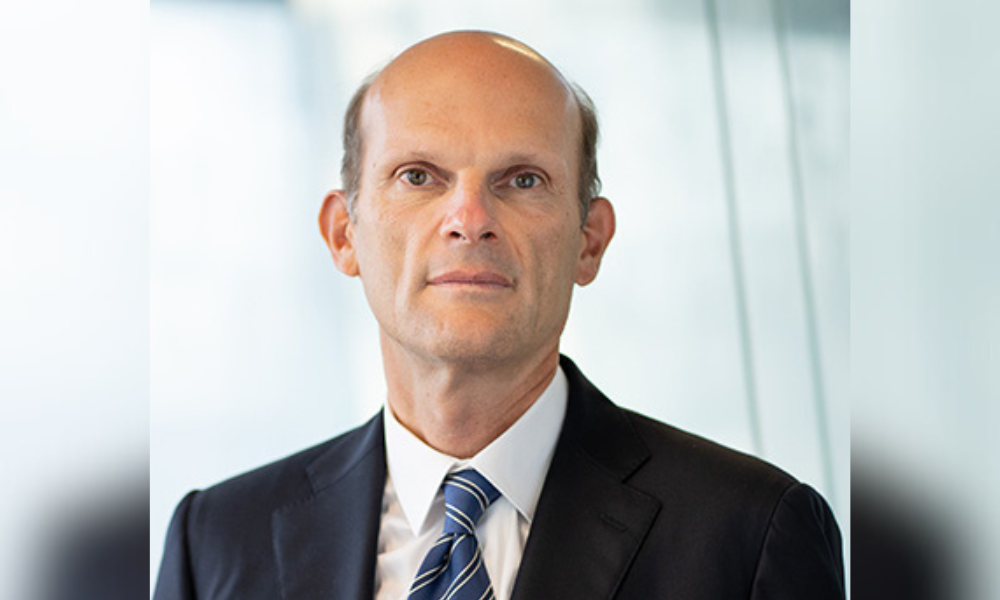AXA deputy CEO on the changing role of insurance in fighting vulnerability

AXA deputy CEO on the changing role of insurance in fighting vulnerability | Insurance Business America
Risk Management News
AXA deputy CEO on the changing role of insurance in fighting vulnerability
“The future cannot be a risk”
At the launch of the 11th annual AXA Future Risks Report, leaders from the insurance giant offered an overview of the complex risk environment impacting societies, communities, organisations and individuals today. Encompassing the responses of over 23,000 respondents, the report painted a picture of a global polycrisis where maturing and emerging risks are intersecting.
For the third year running, climate change, geopolitical instability and cybersecurity were cited as the top risks, with AI and big data concerns coming in fourth for the second year in a row. Meanwhile, fake news was identified not just as a new emerging risk but as one inherently interconnected with the other risks that make up the register.
Understanding the risk of increasing vulnerability
During a media briefing ahead of its launch, Frédéric de Courtois (pictured), deputy CEO of AXA, underscored the relevance of the report not just in terms of opening communication channels and raising awareness of risk, but also in how AXA manages its insurance business. He noted that a particularly striking finding of the research is that people feel more vulnerable to every kind of risk than they did last year.
The report found that a large majority of both the experts (92%) and the general public (90%) surveyed agreed that there has been an increasing number of crises. A similar number also agreed these crises are having a more significant impact on people’s lives. “We are in a world of polycrisis,” de Courtois said. “That means a rise in the number of crises but also the fact these crises are correlated… And this is widely recognised by the general population and by experts, and it causes them worries, hence this feeling of vulnerability.”
Identifying how AXA is looking to mitigate this polycrisis risk environment, he highlighted the insurer’s conviction that, “the future cannot be a risk”.
“Of course, we have a very realistic view of current events, but we’re not fatalistic,” he said. “We want to be proactive. We were satisfied by the fact that 91% of respondents underscored the positive role of insurers in the future. Now we need to meet this expectation. [To do that], we need to have the right state of mind, we need to be agile to further protect our policyholders, and we need to find solutions – particularly technology-based solutions.”
Tackling disinformation – a shared responsibility
The second way in which the business is looking to fight this growing vulnerability is by tackling disinformation. Disinformation is the enemy of prevention, de Courtois said, and with risks becoming increasingly interconnected and complex, steps must be taken to mitigate them. Disinformation has had a clear impact on mitigation efforts, and is causing societal fragmentation which, in turn, is preventing populations from embracing the right preventative measures.
“This is a cause of concern for us, particularly as it comes with something like… Hurricane Helene which hit North Carolina,” he said. “There we saw the measures to rescue communities and to repair their infrastructures after the disaster were widely affected, sometimes prevented by disinformation. When people no longer know what the truth is or where to look, it does have an impact on these recovery measures. So for us, this disinformation is an issue in terms of prevention, but also in terms of post-disaster management.”
Fighting disinformation will require multiple stakeholders to work together, de Courtois said. Where AXA sees an opportunity to act upon the topic is by collaborating with experts, opinion leaders and the population as a whole, as well as engaging in public-private partnerships.
Putting insurance at the heart of problem-solving
The third message is to understand that the insurer is at the crossroads of any transformation, be that demographic, geopolitical, technological or otherwise.
“It is a duty for us to face such risks and find solutions. It is a duty,” de Courtois said. “But as, with any big corporation, we are faced with a strong dilemma – how can we meet our short-term and our long-term perspective? This is the eternal question in any business.”
It’s a balancing act to support the populations and communities facing these risks while maintaining operational consistency. A stabilising solution is to continue investing in human capital and new skills, including but not limited to technological skills. A second solution is investing in the right technologies and the third is to encourage insurers to take more risks.
Understanding the changing role of the insurer
Historically, de Courtois noted that the role of the insurer was to look at the past, to dig into the historical data of events, and to make decisions based on this. That approach still matters, but today, change is happening so fast and frequently, that insurance needs to look to the future and try to plan how it will help to protect the world and populations.
“If we want to protect the world against climate change, we need to embrace technologies that will mitigate climate change,” he said. “But we don’t have historic data about them, so we need to look at the future and try and foresee what will happen, with meteorologists, climate scientists, sociologists, experts in all kinds of fields.
“That’s why these new skills will matter so much. These different skills also need to work together… Analysis is still very important, as in the past, but we need to have a prospective vision… [All of this is] fascinating and worrying at the same time.”
Keep up with the latest news and events
Join our mailing list, it’s free!






